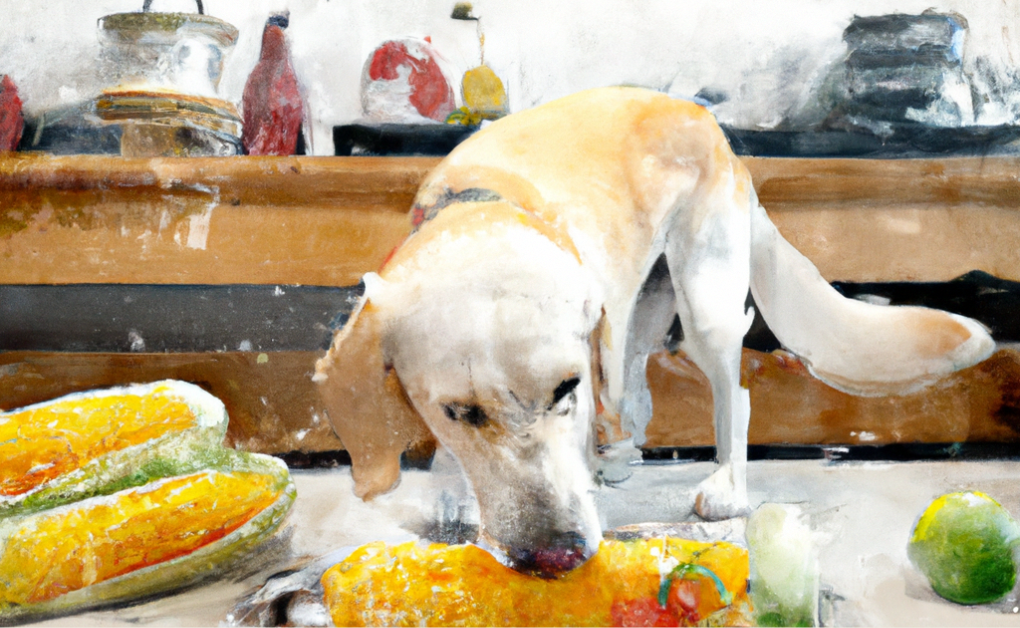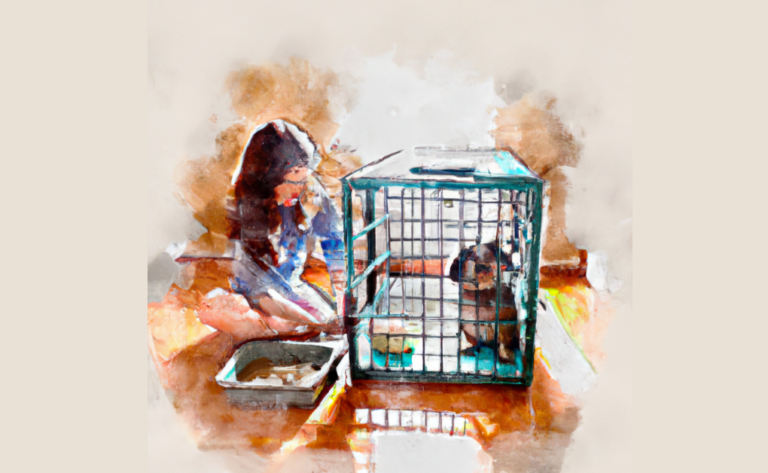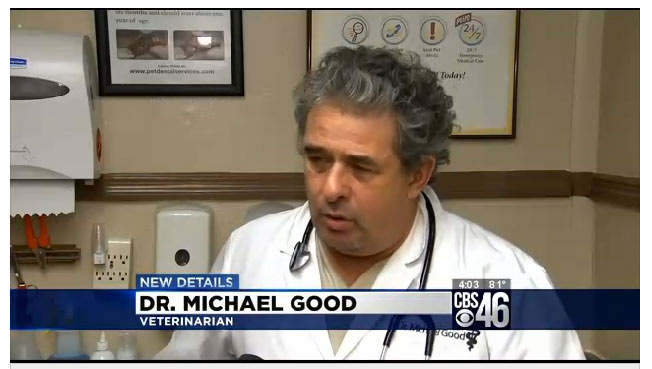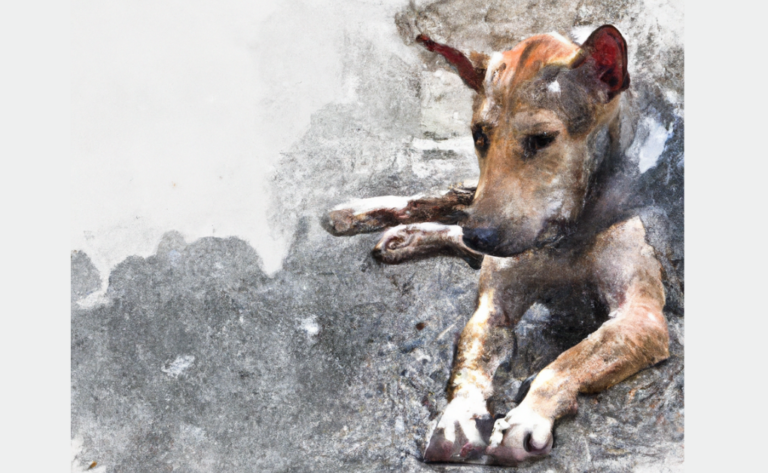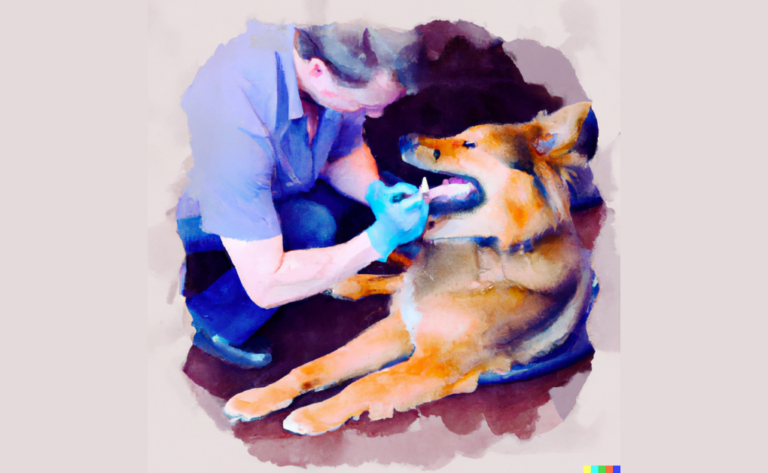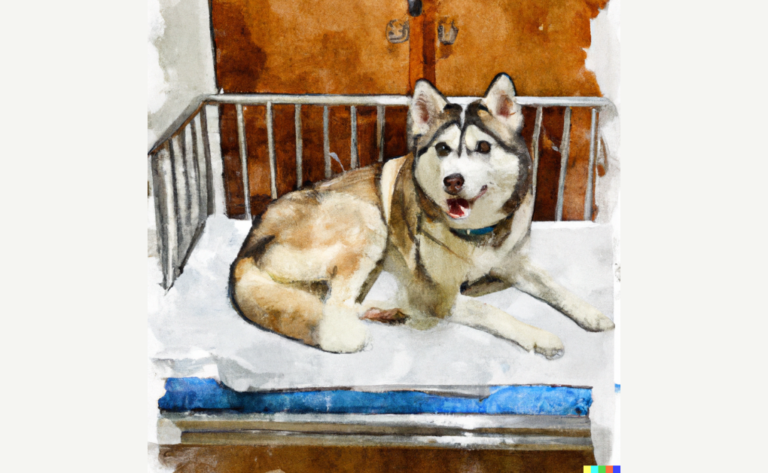13 Foods that Can Kill Your Pet
Introduction
Late one evening, while preparing dinner for her family, Sarah glanced at her lovable golden retriever, Daisy, who was eagerly awaiting a taste of the delicious meal. As she reached for a piece of chocolate, Sarah suddenly wondered whether any of the ingredients she was using could harm her furry companion. This seemingly innocent question led her down a path of discovery, unveiling the potentially lethal effects certain foods could have on pets.
Pets are family members, and they love us unconditionally, and we love them back. But sometimes our furry friends get sick. And when they do, we want to ensure they get well as soon as possible.
Many foods can kill your pet. Some of these foods are obvious, such as chocolate, onions, and garlic, and others, such as coffee beans, grapes, and raisins, could be more obvious. This article will share the top 13 dangerous foods that can kill your dog or cat.
1. Chocolate
Chocolate contains theobromine and xylitol, which are toxic to dogs and cause vomiting, diarrhea, restlessness, and even death. In addition, while chocolate is generally safe for humans, it does contain caffeine, which can cause heart palpitations, anxiety, and insomnia. Therefore, the World Health Organization recommends limiting the consumption of cocoa products to no more than 200mg daily.
If your dog eats too many sweets, he may develop diabetes, kidney failure, liver disease, heart problems, and obesity. So be careful when giving your dog treats. And remember, dogs need to be more brilliant, so they cannot distinguish between real food and candy. They eat everything.
2. Carrots
Carrot is a typical food for dogs because it contains vitamin C. But too many carrots can cause diarrhea, vomiting, and stomach upset. So limit your dog’s intake of raw carrots to no more than 1/4 cup per day.
If you feed your pet cooked carrots, be careful not to overdo them. Too much carrot can lead to kidney failure in dogs.
3. Onions, Garlic, and Chives
Onions, garlic, and onions are three foods that can kill your pet. They’re poisonous to dogs, cats, rabbits, hamsters, guinea pigs, ferrets, rats, mice, birds, fish, reptiles, amphibians, and insects.
Onions are very poisonous if swallowed, and this is because they contain high sulfur compounds, including thiosulfinates and sulfoxides. These chemicals irritate the lining of the stomach and intestines, causing vomiting and diarrhea.
Garlic contains similar amounts of sulfur compounds but does not cause immediate symptoms. However, giving garlic to a dog without consulting a veterinarian could risk serious health problems. This is because dogs do not metabolize garlic as humans do; therefore, they cannot process it properly. As a result, ingesting large quantities of raw garlic can lead to severe internal bleeding, liver failure, kidney damage, and even death.
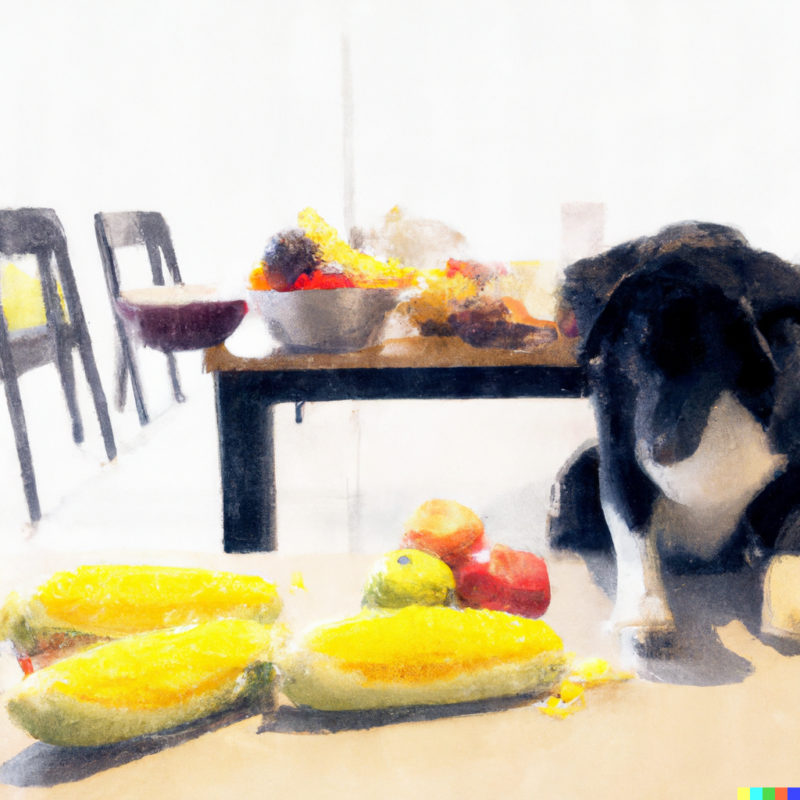
Chives are less toxic than onions and garlic, but they still contain enough sulfur compounds to make them dangerous if ingested. Chives are often used as garnishes for food, and some people mistakenly think they are edible. If you find chives growing wild, avoid eating them because they can cause nausea, cramps, and diarrhea. Eating these vegetables and herbs may result from sIn addition to stomach and intestinal discomfort, red blood cell damage, and anemia.
3. Beans
Beans are great for dogs because they’re high in protein and fiber and help keep your dog healthy and strong. But beans can be fatal to dogs, especially those who eat them raw, and raw bean diets can cause kidney failure, vomiting, diarrhea, and death. So when feeding your pet beans, cook them thoroughly.
If you feed your dog cooked beans, he won’t suffer any ill effects. However, if you give him uncooked beans, he may experience gastrointestinal upset.
4. Alcohol
Alcohol is highly toxic to dogs and can cause severe illness and even death. Alcohol poisoning is a common cause of death among pets, and the most common symptoms include vomiting, diarrhea, depression, tremors, seizures, coma, and sometimes death.
If your pet drinks alcohol, be aware that he may not show any signs of intoxication until several hours after drinking. So please keep track of his activities and watch him closely when you’re away.
Also, never leave your pet unattended near alcoholic beverages. And remember, if you suspect your pet has ingested alcohol, call your veterinarian immediately.
5. Cinnamon
Cinnamon is a spice in many dishes, including bread, cakes, cookies, pies, and beverages. But did you know cinnamon can kill pets?
Cinnamon can be toxic to dogs and cats if you’re not careful. The most common symptom is vomiting, followed by diarrhea. Other symptoms include lethargy, weakness, seizures, tremors, and coma.
To avoid poisoning your pet, keep cinnamon out of reach of children and animals. And only give food or drink to your dog or cat if you’ve tested it first.
6. Grapes & Raisins
Grapes and raisins can cause kidney failure in certain breeds of dogs prone to developing kidney problems. This includes German Shepherd Dogs, Golden Retrievers, Labrador Retrievers, Doberman Pinchers, Rottweilers, Boxers, Pit Bulls, Chihuahuas, and many others.
There is no safe dose of grape juice. Some dogs drink up to 10 cups of grapes per day without showing signs of toxicity, and other dogs consume less than one cup of grapes daily and still develop kidney damage.
Call your veterinarian immediately if you suspect your dog has consumed grapes or raisins and they develop symptoms such as vomiting, diarrhea, lethargy, weakness, loss of appetite, or excessive thirst.
7. Macadamia Nuts
Macadamia nuts are one of the most popular types of nuts worldwide. They are native to Australia and New Guinea. “macadamia” comes from the Malay language, meaning “nut of paradise.”
While macadamias are very healthy, they pose certain risks as they are toxic to pets. For example, macadamias contain cyanogenic glycoside compounds. Cyanogens are poisonous chemicals to pets that break down into hydrogen cyanide gas when eaten. Hydrogen cyanide gas causes headaches, dizziness, nausea, vomiting, convulsions, and death.
Cyanogen levels vary depending on the variety of macadamia nuts. However, the average grade is 0.1 milligrams per kilogram.
Since macadamia nut toxicity is dose-dependent, it’s essential to know how much your pet has ingested to assess its risk for severe health problems. The average level is 0.1 milligrams per kilogram. If you suspect your pet has eaten macadamia nuts, seek veterinary attention immediately, as the symptoms can become serious quickly. Treatment usually includes intravenous fluid therapy and other supportive treatments, including pain medication or anti-nausea drugs.
8. Yeast Dough
Yeast dough is an excellent food for dogs because it contains protein, vitamins, minerals, and fiber. However, yeast dough can be dangerous to pets who eat it.
If your dog overeats yeast dough, he may develop diarrhea, vomiting, lethargy, weight loss, and dehydration. He may also experience abdominal pain, bloody stool, and blood in his urine.
Keep yeast dough out of your pet’s reach to avoid this problem. Also, never feed your pet yeast dough mixed with other foods, including bread crumbs, crackers, cookies, cake, muffins, etc.
Yeast dough is not toxic to humans. But if your pet ingests enough yeast dough, he could become seriously ill. So, if you suspect your pet ate some yeast dough, contact your veterinarian immediately.
9. Citrus Fruits
Citrus fruits contain citric acid, which is toxic to pets. This includes lemons, limes, oranges, grapefruit, tangerines, kumquats, and mandarins.
If you’re not careful, these fruits can kill your pet. The most common symptom of citrus poisoning is vomiting, and other symptoms include diarrhea, excessive thirst, lethargy, depression, seizures, tremors, muscle twitching, weakness, and coma.
If your pet eats citrus fruit, call your vet right away. Please don’t give any medication unless your veterinarian is instructed.
Keep citrus fruit out of your pet’s reach to avoid this problem. Also, wash any citrus fruit thoroughly after cutting it open. And remember to supervise your pet when eating citrus fruits.
10. Corn on the Cob
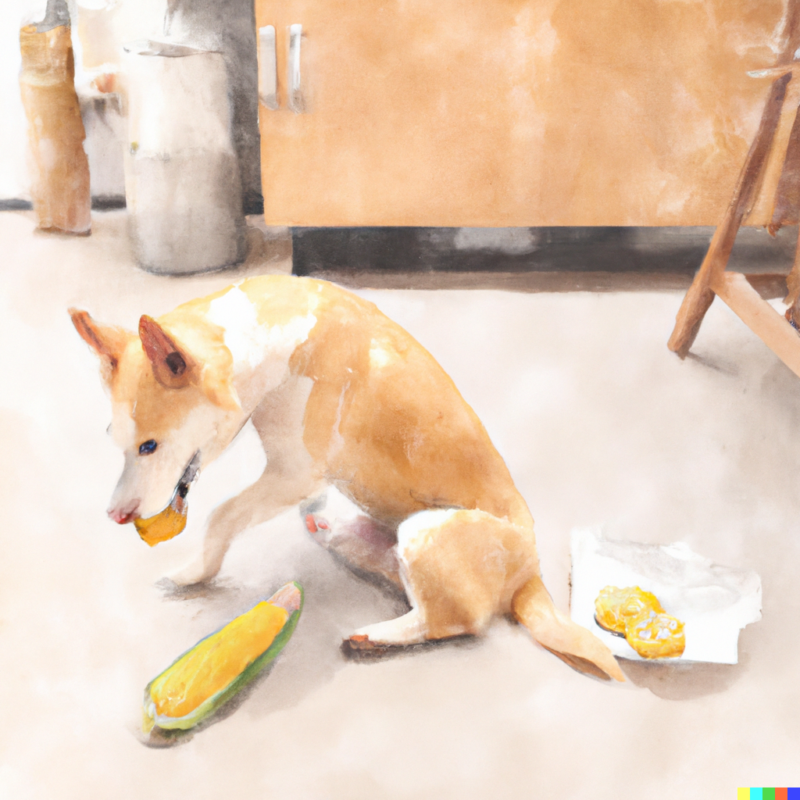
Corn on the Cob Causes Obstruction In Dogs’ Intestines.
A dog owner in New York City recently discovered her pet had eaten some corn on the cob. She rushed him to the emergency vet, where he was diagnosed with intestinal blockage caused by eating corn on the cob. This type of food poisoning is called “corn on the cob poisoning.”
Corn on the cob poisoning occurs when a dog ingests corn kernels. These kernels are hard enough to pass through the stomach without causing damage. However, the seeds begin to soften and expand inside the small intestine. As they do, they push against the walls of the intestine, creating pressure. When the pressure becomes too great, the softening kernels rupture the wall of the intestine, allowing digestive fluids to leak into the body cavity.
This causes severe pain and inflammation in the abdomen. In addition, vomiting and diarrhea occur because the ruptured tissue releases toxins into the bloodstream.
The symptoms of corn on the cob poisoning include vomiting, diarrhea, loss of appetite, weakness, lethargy, depression, seizures, coma, and even death. Contact your veterinarian immediately if your dog has eaten corn on the cob.
If your dog eats corn on the cob, it could lead to serious health problems.
11. Tomatoes
Tomatoes are one of the most popular fruits grown worldwide. They are used in various ways, such as sauces, soups, salads, pizza toppings, pasta dishes, casseroles, baked goods, and even ice cream. In addition to being delicious, tomatoes contain vitamins and minerals like Vitamin B6, Vitamin C, Potassium, Folate, Magnesium, Manganese, Copper, and Zinc. These nutrients help protect against heart disease, diabetes, high blood pressure, obesity, and cancer.
However, tomatoes can be toxic to pets because they’re acidic and cause kidney damage when eaten in large quantities.
To reduce the risk of toxicity, cook tomatoes thoroughly before feeding them to your pet, and cooked tomatoes lose most of their lycopene content. Also, please be cautious when giving your pet any food containing tomato sauce. For example, some brands of canned dog food have tomato sauce.
Call your veterinarian immediately if you suspect your pet has ingested too many tomatoes. The vet can perform blood tests to determine whether your pet needs emergency treatment.
12. Mushrooms
Mushrooms are delicious, nutritious foods that can be used in many ways. They’re often added to soups, stews, sauces, salads, and casseroles. But mushrooms aren’t just tasty; they’re also healthy. Unfortunately, however, they are toxic to pets.
Some types of mushrooms can cause severe kidney damage in pets, and this happens when dogs and cats ingest large amounts of certain mushroom species, such as chanterelles, oyster mushrooms, and shiitake mushrooms.
Call your veterinarian immediately if you suspect your dog or cat ate a common poisonous mushroom. The vet may recommend giving your pet intravenous fluids and administering activated charcoal to help absorb toxins.
Other symptoms include vomiting, diarrhea, lethargy, weakness, seizures, coma, and death.
13. Blue Cheese
Blue cheese contains a chemical called “roquefortin C,” which causes severe health problems for dogs.
The toxin is found in all types of blue cheese, including Gorgonzola, Roquefort, Brie, Camembert, and Stilton. Even though it’s rare for pets to eat enough blue cheese to become sick, it’s essential to quickly recognize the signs of poisoning. Call your veterinarian immediately if you suspect your pet has eaten some blue cheese.
Frequently Asked Questions
Disclaimer: The information provided on this veterinary website is intended for general educational purposes only and should not be considered as a substitute for professional veterinary advice, diagnosis, or treatment. Always consult a licensed veterinarian for any concerns or questions regarding the health and well-being of your pet. This website does not claim to cover every possible situation or provide exhaustive knowledge on the subjects presented. The owners and contributors of this website are not responsible for any harm or loss that may result from the use or misuse of the information provided herein.

